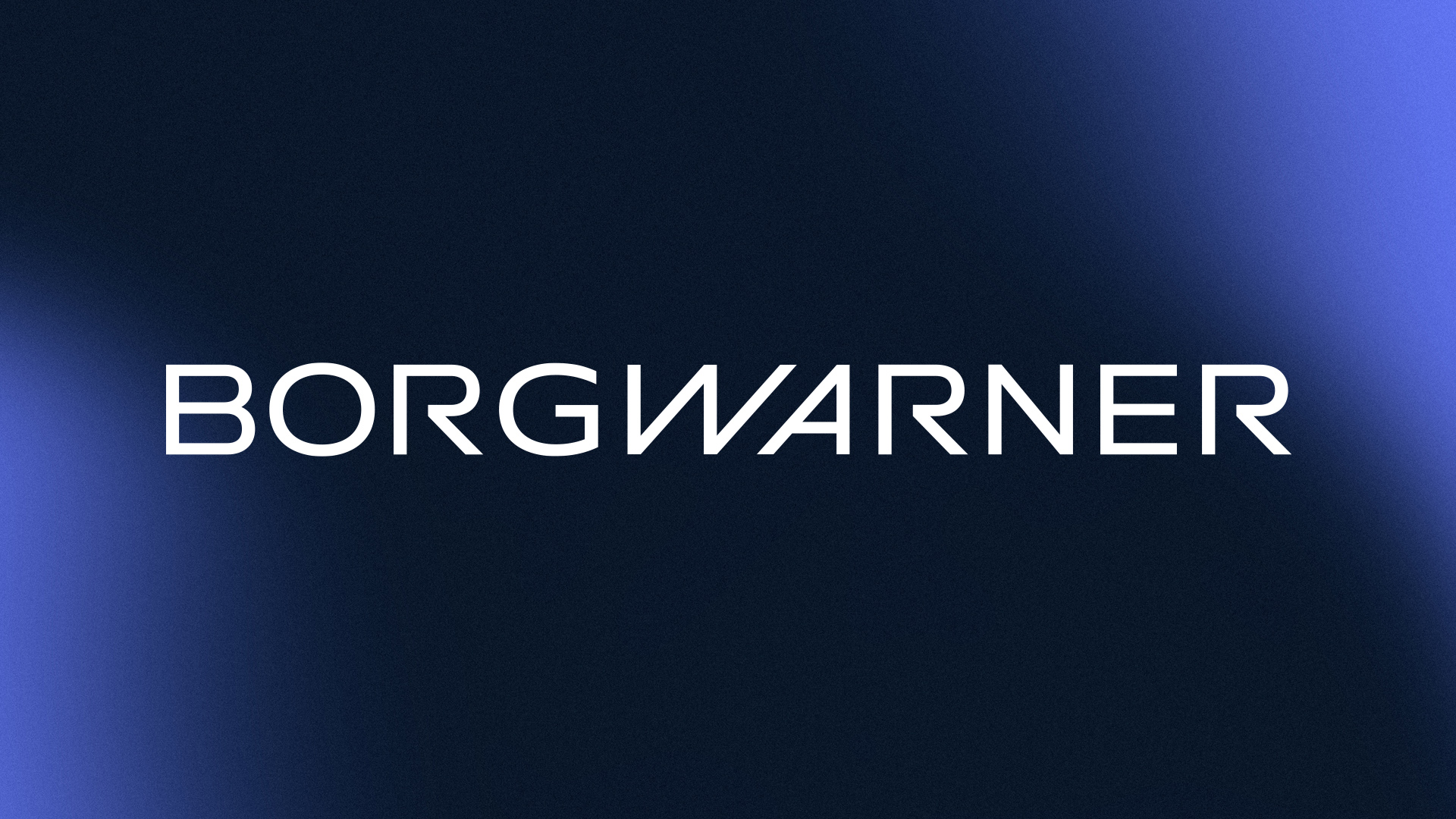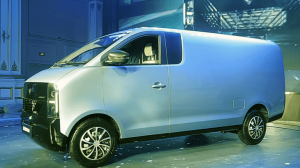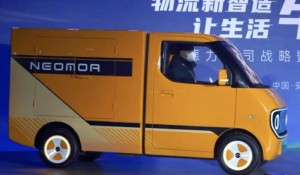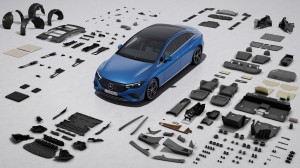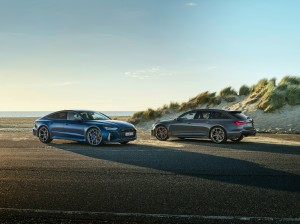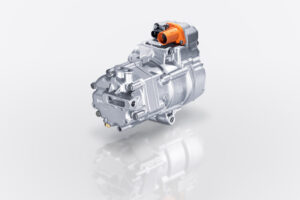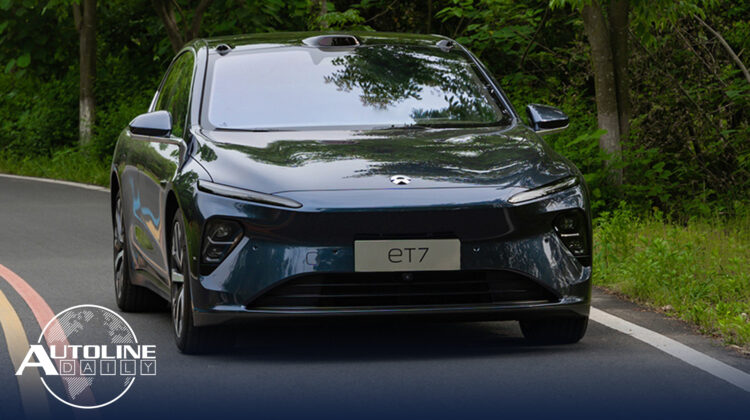
Listen to “AD #3457 – Only BEVs Can Hit Carbon Neutrality; NIO Planning U.S. Expansion; Audi Pumps ICE Power Into RS 6 and 7” on Spreaker.
Follow us on social media:
Runtime: 9:23
0:00 EU Worried About U.S. EV Subsidies
1:00 U.S. Car Sales Could End Year Strong
1:42 Improve Traffic Flow, Cut Emissions
3:11 Three Quirky EV Vans Debut in China
4:43 Mercedes Sees Near 50% CO2 Cut for EV Batteries
5:31 Audi Pumps ICE Power Into RS 6 & RS 7
6:58 NIO Targets U.S. Market w/ Next-Gen EVs
7:38 Legacy Supplier Lands Big EV Contracts
8:10 Only BEVs Can Hit Carbon Neutrality
Visit our sponsors to thank them for their support of Autoline Daily: Bridgestone, Intrepid Control Systems, and Schaeffler.
This is Autoline Daily, the show dedicated to enthusiasts of the global automotive industry.
EU WORRIED ABOUT U.S. EV SUBSIDIES
Europe is worried that the IRA and all the EV incentives it provides will push more European companies to open EV and battery plants in the U.S. Now Swedish battery maker Northvolt is considering opening a new plant in the U.S. instead of Germany. Why? It could get more than $830 million in incentives from the Inflation Reduction Act, which is four times more than what it would get in Germany. And then there’s energy costs, which have soared in Europe ever since Russia’s invasion of Ukraine. Thomas Schaefer, the head of the Volkswagen brand, warns that if the EU doesn’t address high energy costs, it won’t be feasible to produce batteries in Europe. So what do you think? Should the U.S. provide exemptions to the IRA, or should Europe adopt its own version of the legislation.
U.S. CAR SALES COULD END YEAR STRONG
Interest rates are sky high, inflation is running rampant, the stock market is going through a major correction, but the U.S. auto industry could end the year on a high note. That’s according to Ward’s Intelligence, which says that rising inventory levels are giving automakers some tailwind. More inventory means dealers won’t be able to charge as much over the MSRP. And it means automakers can make more cars, trucks and vans available to fleets, which have been starving for vehicles. Ward’s says automakers have 1.6 million vehicles in inventory, which is 58% higher than it was at this time a year ago.
IMPROVE TRAFFIC FLOW, CUT EMISSIONS
There are lots of ways to make vehicles run cleaner, and some of them have nothing to do with building better vehicles. Nissan, the Tennessee Department of Transportation and four universities did a test using 100 Nissan Rogues with artificial-intelligence cruise control technology. They drove the Rogues on a four mile stretch of Interstate 24 just outside Nashville, which is equipped with 300 sensors that can capture 260 million vehicle miles of data per year. The idea is to figure out how to smooth out traffic and reduce congestion. And that can have a dramatic impact on fuel efficiency and emissions. Some studies suggest that with better traffic management emissions could drop more than 20% without any change in the current fleet of vehicles.
THREE QUIRKY EV VANS DEBUT IN CHINA
I love cars, but I can get bored with how similar most look, which is why I get so excited for weird stuff, like this electric delivery van from a Chinese EV startup, called Jenhoo. This is the EV48. Small wheels, small windows mounted high on the front doors, near vertical grille and a single, B-pillar-less side door opening all add to this van’s quirkiness. It’s powered by a 60 kW or 82 horsepower electric motor and features an LFP battery from CATL. Jenhoo was founded less than two years ago, but the EV48 will launch sometime early next year and will be built by another Chinese automaker, Jiangling, which also has a JV partnership with Ford. But wait, there’s more weird stuff coming out of China. A company, called Derry Auto, says it plans to launch a series of EVs and just revealed a couple of last-mile delivery vehicles. One is a small, wedgy van with squared off design features, called the Neomor 03 and the other, called the Neomor 01, is an even smaller vehicle with a more bubbly design and a face similar to the Honda e. The 01 features a tiny 8 kWh battery, but is said to return a somewhat impressive 120 kilometers or 74 miles of range. It sounds like these vehicles should hit the market before 2024. (PICTURED: Jenhoo EV48 – Top; Derry Auto Neomor 01 – Bottom)
MERCEDES SEES NEAR 50% CO2 CUT FOR EV BATTERIES
Mercedes did a life cycle assessment of the EQE and found a few ways to cut carbon emissions. First, It based the assessment on 250,000 kilometers or 155,000 miles of driving. Mercedes found that the EQE has 184 components that weigh over 78 kilograms or about 172 pounds that can, at least, be partly made with recycled or renewable materials. But the one we found most intriguing is that the total lifecycle CO2 of the EQE can nearly be cut in half if the battery cells are made with renewable energy, like hydroelectric power. We’ll provide a link in the transcript or description box if you’d like to read more.
AUDI PUMPS ICE POWER INTO RS 6 & RS 7
Audi’s RS models are already strong performers but it’s giving the RS 6 and RS 7 even more power. The turbos of the car’s 4.0L V8 have been increased which boosts output by roughly 30 horsepower to nearly 630 and torque by about 37 lb-ft. That makes them two tenths of a second faster from 0-100 km/h compared to the base RS 6 and 7. They’ll now do that run in 3.4 seconds. Audi also removed insulation to improve sound and reduce weight, it added a new self-locking center diff and wrapped the unique 22-inch wheels in performance tires. The new RS 6 and 7 performance editions go on sale December 8th in Germany and cost 135,000 euros.
NIO TARGETS U.S. MARKET WITH NEXT GEN EVs
Chinese EV maker NIO is currently expanding into Europe and now is setting its sights on the U.S. market. The head of the company, William Li, told employees that it will sell its next-gen vehicles in the U.S. but he didn’t share any details about when or what vehicles it will sell. That raises the question, will Nio just eat the 27.5% import tariff on Chinese cars shipped to the U.S.? Or will Nio start assembling cars in the U.S. to avoid those tariffs? Some auto analysts believe Chinese OEMs will have to build cars in the U.S. if they want to crack into the market.
LEGACY MAHLE LANDS BIG EV CONTRACTS
Legacy automotive suppliers can still be competitive in the EV game if they come out with the right components. Mahle says it has €1.4 billion in orders for an AC compressor it developed specifically for electric vehicles. The compressor can run on up to 900 volts, has a peak power of 18 kilowatts and only displaces 57 cubic centimeters, so it can be used in everything from small passenger cars to heavy duty trucks.
ONLY BEVs CAN HIT CARBON NEUTRALITY
Automakers all over the world are committing to achieve carbon neutrality by 2050. And that’s a problem for hybrid-electrics and plug-in hybrids, unless low-carbon e-fuels become widely available. That’s one of the findings that came out of the SAE’s North American International Propulsion Conference this month. While hybrids and plug-ins do reduce CO2 emissions, they don’t go far enough. Only BEVs can get automakers to carbon neutrality by the middle of the century. And it doesn’t look like e-fuels are going to ride to the rescue for hybrids and plug-ins. As we reported yesterday, e-fuels need three times the energy to make than gasoline and also cost three times as much.
But that’s a wrap for today. Thanks for tuning in.
Thanks to our partner for embedding Autoline Daily on its website: WardsAuto.com
Seamus and Sean McElroy cover the latest news in the automotive industry for Autoline Daily.

